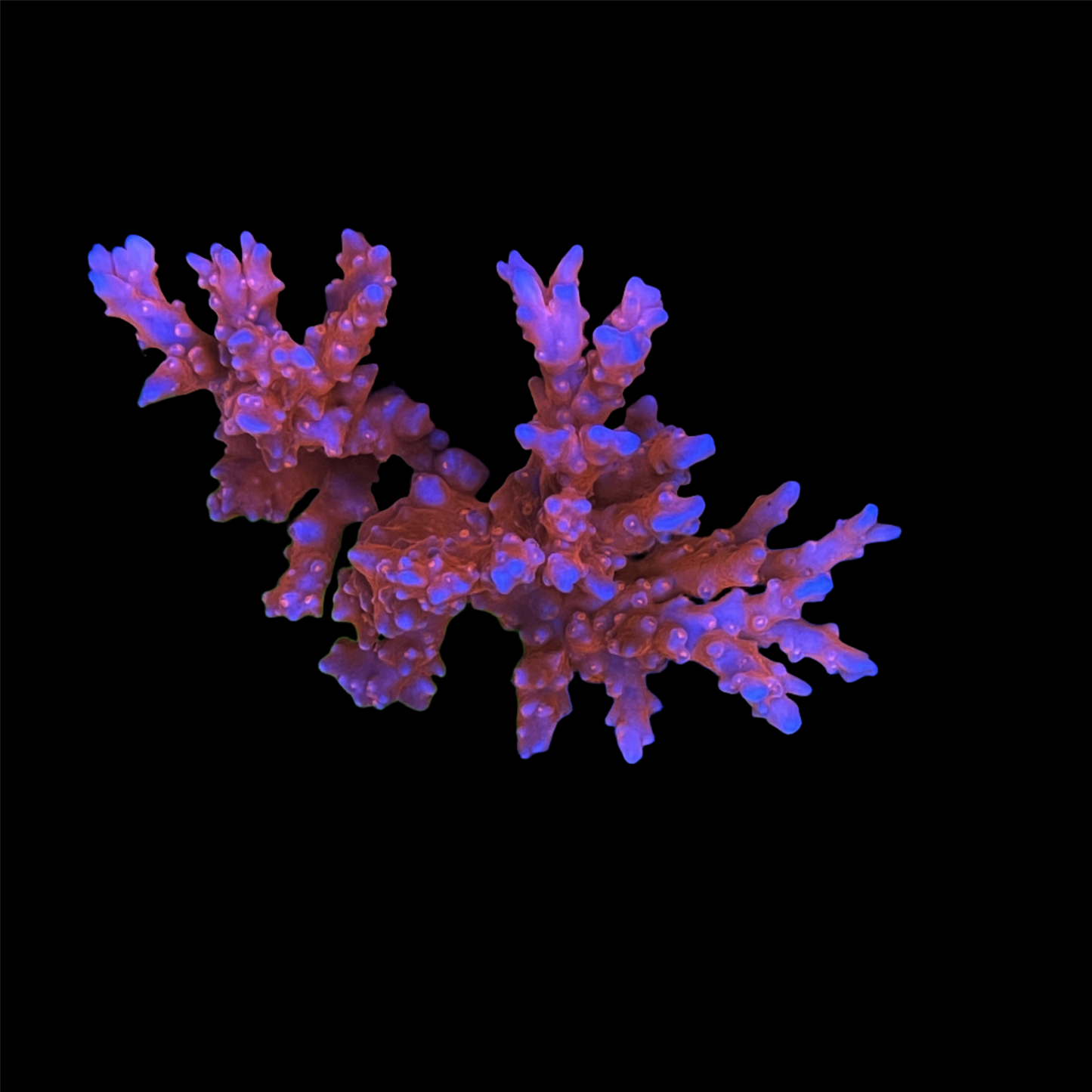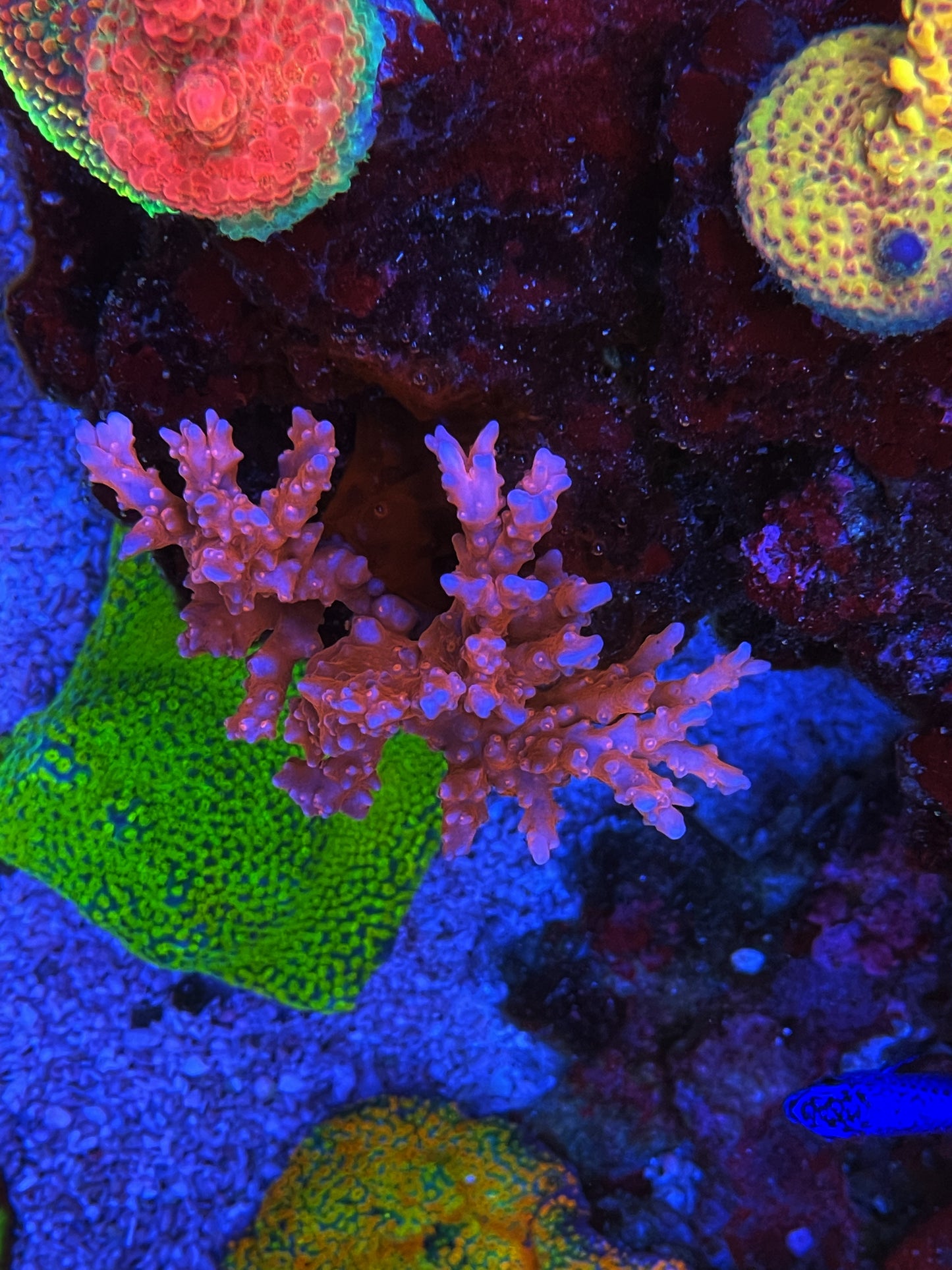Aquarium Show
JF TNT Anacropora
JF TNT Anacropora
Couldn't load pickup availability
FRAGS ARE BETWEEN 3/4" AND 1.5"
Acropora coral, belonging to the genus Acropora, is one of the most recognizable and highly prized types of small polyp stony coral (SPS) among marine aquarists. Known for its intricate and diverse branching structures, Acropora coral can form stunning, tree-like colonies with a variety of growth patterns, including tabling, staghorn, and bushy shapes. These corals come in a dazzling array of colors, ranging from vibrant blues, greens, and purples to more subtle pinks, browns, and yellows.
Acropora coral is found in tropical reef environments across the Indo-Pacific and Caribbean regions, where it plays a crucial role in reef-building due to its fast growth rate and calcium carbonate skeleton. In an aquarium setting, Acropora requires high lighting conditions and strong water flow to mimic its natural habitat. Maintaining stable water parameters is essential, with an optimal temperature range of 72-78°F, a pH of 8.1-8.4, and a calcium level of 400-450 ppm.
Acropora coral is considered more challenging to care for compared to other corals due to its sensitivity to changes in water quality and environmental conditions. It thrives in well-established reef tanks with consistent parameters and minimal fluctuations. Regular monitoring of alkalinity, calcium, and magnesium levels, along with diligent water changes and filtration, is crucial for its health and growth.
The coral relies heavily on the symbiotic zooxanthellae algae within its tissues for nutrition through photosynthesis. Supplementing this, Acropora can also benefit from occasional feedings of planktonic foods and coral-specific supplements, which can promote vibrant coloration and growth.
Due to its striking appearance and the level of care required, Acropora coral is often considered a centerpiece in advanced reef aquariums. Its intricate branching forms and brilliant colors can create a breathtaking underwater landscape, adding both aesthetic beauty and ecological complexity to the marine environment.




